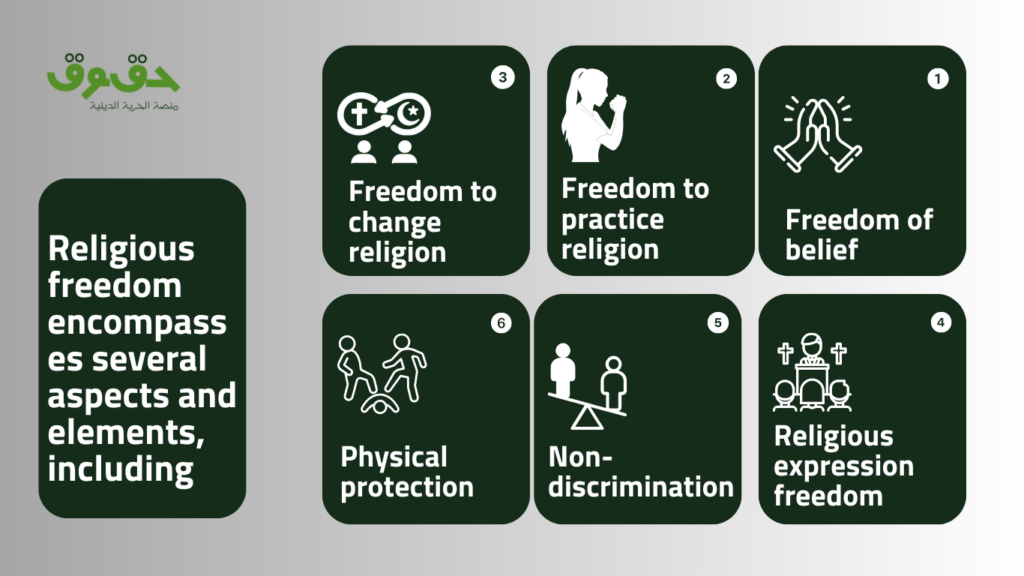The Concept of Religious Freedom
The concept of religious freedom, as a human right guaranteed by national and international constitutions and laws to all people without discrimination based on religion, race, or color, among others, is a relatively recent idea historically. It presupposes a specific political, philosophical, and religious framework. While some religions in various historical contexts managed to coexist within different forms of social organization, this coexistence was often a form of tolerance, subject to change under certain circumstances or conditions.
Even in systems where the law guarantees this right, there are instances where the right to practice religious freedom can be curtailed. Religious freedom is a fundamental freedom with a broader and deeper scope than many may realize. In a more precise sense, religious freedom, tied to the right to “freedom of conscience,” is the right that all people should contemplate, believe in, express their beliefs, and live according to their conscience, whether they adhere to religious beliefs or not.
Religious freedom is one of the core values in our modern societies, reflecting the importance of respecting human rights, cultural diversity, and beliefs. Religious freedom is the cornerstone of ensuring peaceful coexistence among different religions, beliefs, thoughts, and diverse communities characterized by pluralism. Every individual should have the right to embrace the religion of their choice or not adhere to any religion at all. Governments, public institutions, and private organizations have a fundamental responsibility to protect this right and ensure that there is no discrimination against any individual or group based on their religious or non-religious beliefs. It is not just a legal principle but a universal human value that reflects tolerance, respect for others, and embodies the principles of justice and global human rights that societies and governments must uphold to guarantee a dignified and prosperous life for all.
Religious freedom, along with its associated rights and freedoms such as freedom of conscience, freedom of expression, academic freedom, and the freedom to practice religious rituals, is essential in supporting peaceful coexistence. However, these freedoms must be balanced with other considerations such as the rights of others, the rule of law, and public safety. Nevertheless, as these freedoms are crucial to human dignity and contribute significantly to building a democratic and civilized society, they deserve protection and defense.
Protecting religious freedom is a shared responsibility between state institutions and all citizens who cherish their freedom and understand the importance that “the freedom of some is guaranteed like the freedom of others, and it is a right that cannot be fragmented or divided into parts.” The protection of religious freedom also requires a deep understanding and full respect for it. A misunderstanding of religious freedom can lead to the imposition of overly restrictive rules and laws that do not adequately safeguard it as required. Ignorance of religious freedom as a fundamental right for both the majority and the minority can lead to its violation, undermining this basic freedom.
Therefore, it is crucial to have strong societal and institutional awareness of the right to religious freedom, along with a comprehensive understanding of its meaning, to ensure its continuity and prosperity.
Religious freedom encompasses several aspects and elements, including
All of these elements aim to promote peaceful coexistence among religions and beliefs and ensure the rights of individuals to practice their religion freely, without discrimination or violation, while living according to their personal beliefs with respect for others.







